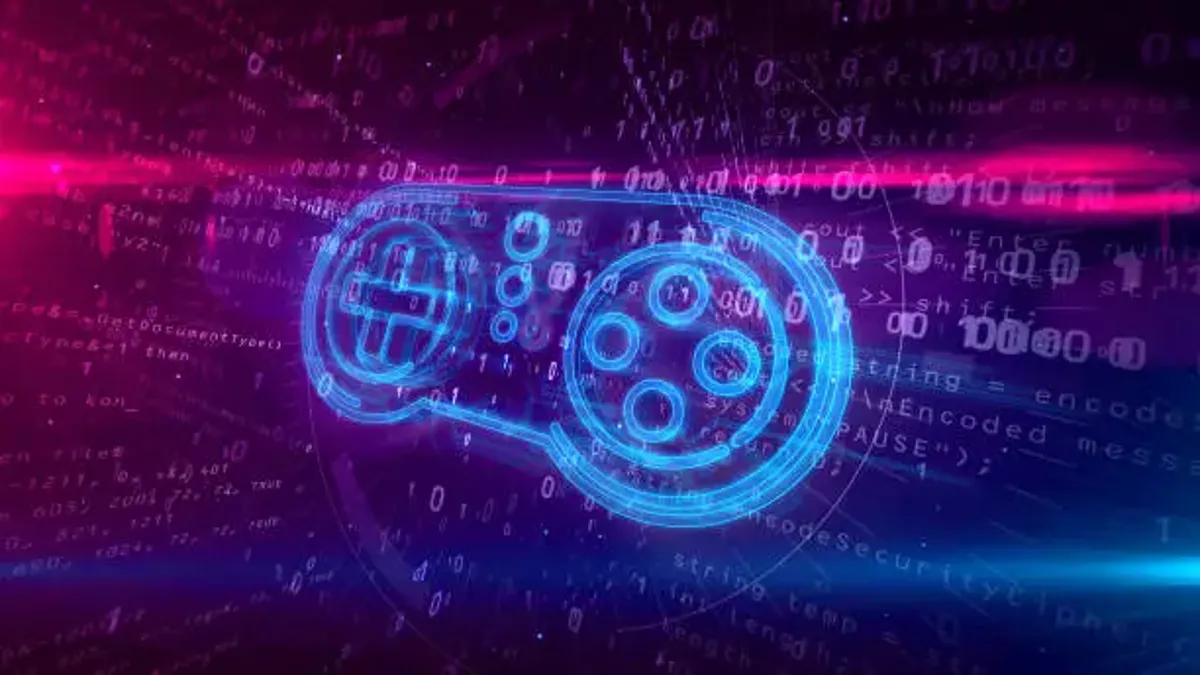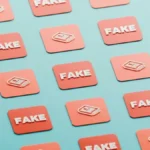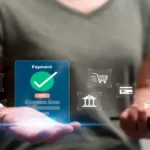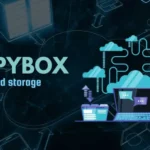In the ever-expanding universe of gaming, one question has quietly haunted both players and publishers: Should games ever be truly free? For millions who type “SteamUnlocked” into their search bars every month, the answer seems obvious. SteamUnlocked is a website offering hundreds of popular PC games—ranging from indie hits to AAA titles—available for instant download without payment. For some, it’s a haven of accessibility; for others, it’s a symbol of digital piracy. Yet behind its simple interface lies a complex story of technology, economics, and moral gray zones that define the modern gaming ecosystem.
The intent behind such searches is straightforward. Users want free access to the latest games, bypassing digital storefronts like Steam, Epic, or Origin. But the issue runs deeper. SteamUnlocked operates outside traditional commerce, offering pre-cracked game files that remove digital rights management (DRM) protections. While the site claims to serve players who cannot afford expensive games, publishers view it as an existential threat to intellectual property.
As global gaming revenues surpass $200 billion annually, the stakes are enormous. SteamUnlocked reflects a larger cultural tension between accessibility and authorship, democratization and theft. For students, low-income players, or those in developing nations, such sites provide entry to digital culture otherwise out of reach. Yet for creators, each download represents a potential loss—not only of revenue but of recognition. In the intricate web of the modern gaming economy, SteamUnlocked stands as both symptom and signal—a mirror of what happens when technology outpaces law and ethics.
Interview: Inside the Shadow Economy of Free Games
Date: September 14, 2025
Time: 5:30 p.m. EST
Location: New York University, Department of Interactive Media
Interviewee: Dr. Michael Grant, Professor of Digital Ethics and Game Economics
Q: Dr. Grant, when people visit SteamUnlocked, what are they really engaging with?
A: They’re entering what I call the gray market of digital entertainment. SteamUnlocked doesn’t sell games—it distributes them for free by bypassing DRM systems. Technically, that makes it piracy. But culturally, it’s much more complicated because it exposes the tension between access and ownership in the digital age.
Q: How does it differ from legal alternatives like Steam or Epic Games Store giveaways?
A: Legal platforms pay developers through licensing or promotional agreements. SteamUnlocked, on the other hand, offers cracked versions—essentially reverse-engineered copies with protections removed. No revenue returns to the creators. However, many users justify it on moral grounds, claiming that high game prices or geographic restrictions make piracy their only option.
Q: Who typically uses sites like this?
A: Data suggests it’s largely younger users, students, and players from countries where game prices are disproportionately high compared to local income. Ironically, many of them go on to become legitimate buyers later in life once they can afford it. This is what I call the “piracy incubation effect.”
Q: Are there genuine risks involved for users?
A: Absolutely. Cracked games can contain malware or data-mining software. Since users disable antivirus protection to install them, they expose themselves to serious security threats. Plus, downloading copyrighted software remains illegal in most jurisdictions.
Q: How should the industry respond?
A: The solution isn’t criminalization—it’s accessibility. Subscription models like Xbox Game Pass or Steam’s regional pricing are already reducing piracy by making games affordable. Punitive measures alone don’t address the root cause: inequality of access in digital economies.
Q: So is SteamUnlocked purely negative, or does it reveal something important?
A: Both. It challenges us to rethink how digital goods are valued. The moral of the story isn’t about theft—it’s about design. If players consistently choose free access over legal purchase, maybe the system itself needs to evolve.
The Origins of SteamUnlocked
SteamUnlocked first appeared around 2018 as one of several clone websites promising “free Steam games pre-installed.” While its name suggests an association with Valve’s Steam platform, it operates independently and without authorization. The website’s layout mimics legitimate storefronts, offering search categories, screenshots, and download buttons. Yet every game is hosted on third-party file-sharing networks.
Unlike torrents, SteamUnlocked offers direct downloads, which makes it accessible to non-technical users. Visitors can find blockbuster titles like Grand Theft Auto V, Resident Evil 4 Remake, and Elden Ring, often within days of release. The site’s administrators remain anonymous, rotating domain extensions to evade takedowns—.net, .to, .li, and others. Its traffic fluctuates between 30 and 40 million monthly visits, making it one of the internet’s most popular piracy hubs.
SteamUnlocked’s success lies not only in its content but in its philosophy: free, fast, and frictionless. It caters to players disillusioned with DRM-heavy platforms, microtransactions, or intrusive launchers. Yet in doing so, it raises fundamental questions about how we define fairness in digital distribution.
Table 1: Legal vs. Illegal Game Platforms
| Criteria | Steam / Epic (Legal) | SteamUnlocked (Pirated) |
|---|---|---|
| Source of Games | Licensed from developers and publishers | Cracked copies from unauthorized groups |
| Cost to Player | Varies ($0–$70 per game) | Free |
| Revenue to Developers | Shared profit margins | None |
| Security Risks | Minimal (verified servers) | High (malware, keyloggers) |
| Legality | Fully legal | Illegal in most countries |
The Digital Ethics Debate
SteamUnlocked occupies a peculiar moral space in the gaming ecosystem. To some, it’s outright theft; to others, it’s a form of digital protest against corporate pricing structures. As Dr. Sarah Nguyen, a technology law scholar at Stanford, explains: “When the average monthly income in some regions equals the price of a single video game, piracy becomes a socioeconomic behavior, not a criminal one.”
Indeed, data from the Entertainment Software Association (ESA) reveals that regions with higher poverty rates correlate strongly with game piracy. SteamUnlocked’s popularity in Southeast Asia, Latin America, and Eastern Europe mirrors these trends.
But moral justification doesn’t negate the law. Developers—especially indie studios—depend on sales to survive. “For a team of five, losing a few thousand downloads can mean the difference between making another game or shutting down,” says Liam Porter, founder of indie studio GlimmerWorks. He calls piracy “a quiet epidemic that eats away at creative independence.”
Cybersecurity and User Risks
Beyond legality, SteamUnlocked poses serious technical risks. Cybersecurity firm Kaspersky Labs has repeatedly warned that pirated games often serve as delivery systems for malware, crypto miners, or spyware. In 2024 alone, over 500,000 infected files were traced to cracked game installers shared via piracy networks.
When users disable antivirus or firewall protection to install such software, they inadvertently invite system compromise. Some malware variants even hijack computing power for crypto-mining, draining energy and slowing devices. “The irony,” says Ravi Patel, a cybersecurity analyst at NortonLifeLock, “is that the money saved by downloading a pirated game can be dwarfed by the cost of recovering an infected system.”
Additionally, since sites like SteamUnlocked lack encryption or privacy safeguards, user data—IP addresses, device details, and browsing patterns—can be logged or sold to third parties. In a digital age where identity theft is rampant, free games often come with invisible costs.
Table 2: Common Risks of Downloading from Unverified Sources
| Risk Type | Description | Potential Impact |
|---|---|---|
| Malware Infection | Game files may contain viruses or ransomware | Data loss, system compromise |
| Phishing Links | Redirects to fake download portals | Credential theft |
| Spyware Tracking | Collects user data without consent | Privacy violation |
| Legal Penalties | Copyright law violations | Fines or prosecution |
| Unstable Performance | Cracked versions lack updates | Game crashes, bugs, incompatibility |
The Economics of Piracy vs. Accessibility
Economically, piracy reflects a gap between demand and affordability. According to a 2024 market report by Newzoo, average PC game prices have risen by 28% over five years, while global wage growth in developing countries has remained stagnant. Subscription services like Xbox Game Pass, PlayStation Plus, and EA Play have helped, but large regional disparities persist.
In Indonesia or Nigeria, for example, a $60 game represents nearly a week’s average income. “The global pricing model is still Western-centric,” argues Dr. Grant. “Publishers expect uniform revenue from a non-uniform world.” SteamUnlocked, in that sense, exposes economic inequality rather than mere criminal intent.
However, there’s evidence that piracy may not always hurt sales. A 2023 European Commission study found that many pirates eventually purchase the games they initially downloaded illegally. Known as the conversion effect, this behavior suggests that early access can foster long-term loyalty—a paradox that gaming companies are only beginning to acknowledge.
Industry Countermeasures and Changing Strategies
In response to sites like SteamUnlocked, game developers and publishers have invested heavily in DRM technology and anti-piracy measures. Companies like Denuvo, for instance, provide encryption software that prevents unauthorized copying. Yet DRM often frustrates legitimate users more than it deters pirates. “It’s a cat-and-mouse game,” says David Lee, a software engineer at a major game publisher. “Every DRM system eventually gets cracked—sometimes within days.”
As the industry adapts, new business models are emerging. The rise of cloud gaming—where players stream games directly without owning them—reduces piracy risks. Subscription models and regional pricing are also softening barriers. Steam’s flexible pricing in India, for example, has led to a 40% decline in local piracy rates since 2020.
Publishers are also turning to engagement-based monetization. Free-to-play games like Fortnite and Genshin Impact generate billions annually through microtransactions and cosmetic sales, effectively making piracy irrelevant. The challenge is creating systems that balance profitability with inclusivity—a feat that SteamUnlocked’s very existence challenges the industry to achieve.
The Cultural Dimension of “Free”
SteamUnlocked is more than a website; it’s a cultural statement about how digital generations perceive ownership. Younger gamers who grew up with Spotify and Netflix often see media as a service, not a product. Paying $70 upfront for a game feels archaic in an age of subscriptions and access models.
“Piracy isn’t driven by greed—it’s driven by expectation,” says Dr. Nguyen. “When everything else is on-demand, people expect games to be too.” This mindset has reshaped digital ethics. Many users differentiate between stealing and sharing, viewing cracked games as a redistribution of digital wealth rather than a crime.
However, this cultural shift risks devaluing creative labor. Game development involves years of effort from artists, programmers, and designers. When their work becomes disposable through free downloads, it undermines the sustainability of creative industries. As digital culture evolves, reconciling convenience with compensation remains one of its central dilemmas.
Bullet Section: Key Takeaways
- SteamUnlocked is a popular website offering pirated PC games without authorization, bypassing digital rights management systems.
- It highlights global disparities in gaming accessibility and pricing, particularly in lower-income regions.
- Downloading from such sites carries high risks, including malware, data theft, and legal penalties.
- Ethical debates persist: Is piracy theft, protest, or necessity in an unequal digital economy?
- Industry responses include cloud gaming, subscription services, and regional pricing to reduce piracy incentives.
- The long-term solution lies in balancing accessibility with respect for creators’ rights.
- SteamUnlocked serves as a reflection of broader societal tensions around ownership, privilege, and the future of digital content.
Conclusion
SteamUnlocked exists at the intersection of idealism and illegality. It embodies the universal desire for access and the persistent failure of global markets to meet it. For some, it’s a rebellion against corporate greed; for others, it’s a digital crime scene. Yet both perspectives converge on a truth: the way we distribute, value, and consume games must evolve.
In the next decade, as streaming, AI personalization, and blockchain verification reshape entertainment, piracy may lose its grip. But until accessibility matches aspiration, sites like SteamUnlocked will continue to thrive—symbols of a digital world still negotiating its moral compass. The story of SteamUnlocked is not merely about stolen games; it’s about the price we attach to play, and the values we reveal when we refuse to pay it.
FAQs
Q1: Is SteamUnlocked legal?
No. SteamUnlocked distributes cracked game files without authorization, violating copyright laws in most jurisdictions.
Q2: Can downloading from SteamUnlocked cause viruses?
Yes. Cracked files may contain malware or ransomware, posing serious cybersecurity risks to users.
Q3: Why do people use SteamUnlocked?
Many users cite affordability issues or lack of regional access to certain titles as motivations for using piracy sites.
Q4: Are there safe, legal alternatives?
Yes. Platforms like Steam, Epic Games Store, and Xbox Game Pass offer free or discounted games legally.
Q5: What happens if you’re caught pirating?
Penalties vary by country but can include fines, civil lawsuits, or criminal charges depending on scale and intent.
Citations & References
- Entertainment Software Association (ESA). Global Video Game Industry Report 2024.
- European Commission. Study on the Impact of Digital Piracy on Sales. 2023.
- Newzoo. Global Games Market Report. 2024.
- Kaspersky Labs. Cybersecurity Risks of Pirated Software. 2024.
- NortonLifeLock. Annual Cyber Threat Insights Report. 2025.
- Interview with Dr. Michael Grant, NYU Department of Interactive Media, September 2025.
- Stanford University Center for Internet and Society. Digital Ethics and Piracy Studies. 2024.
- Porter, L. (2023). “Indie Games and the Economics of Piracy.” Journal of Game Studies.
- Nguyen, S. (2024). “Piracy and Digital Inequality.” Stanford Technology Law Review.
- Lee, D. (2024). “DRM in the Age of Cloud Gaming.” Game Developer Conference Proceedings.











